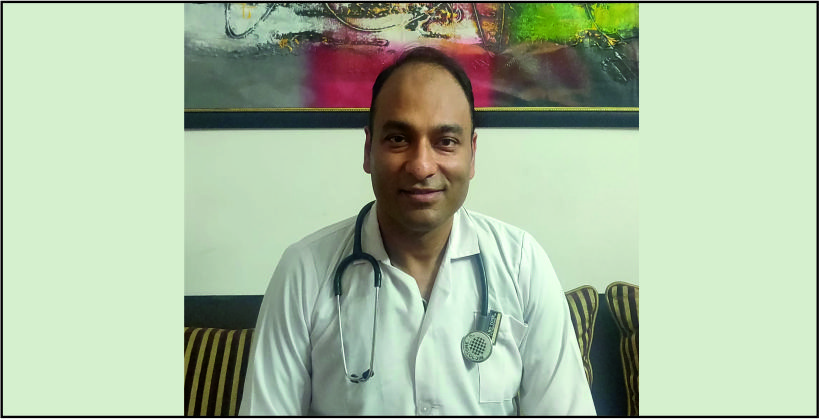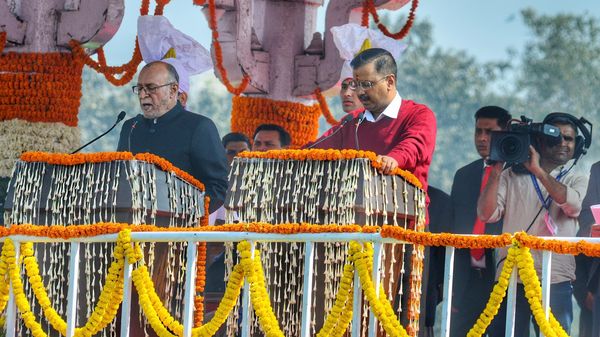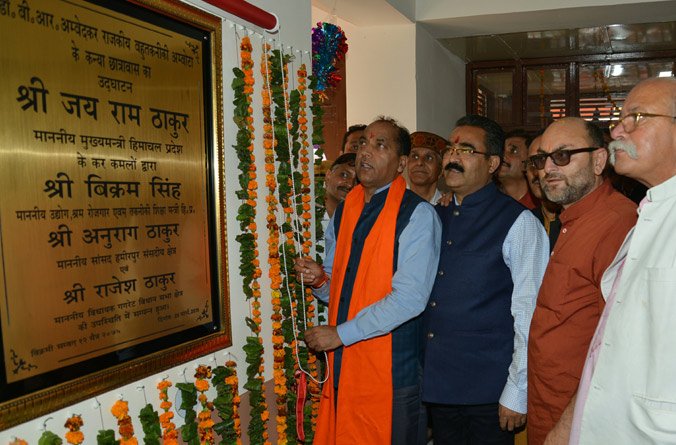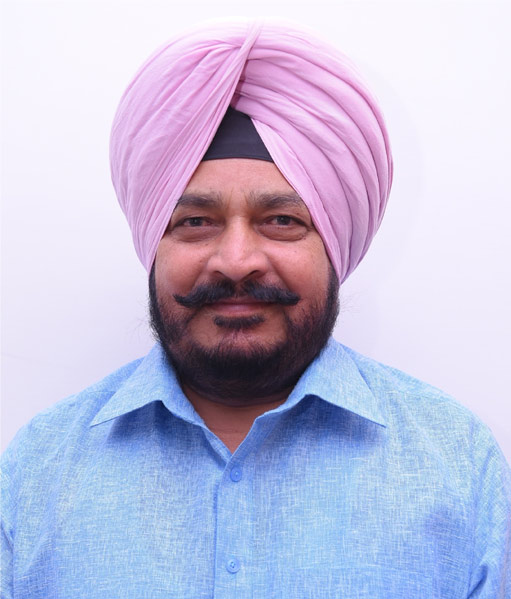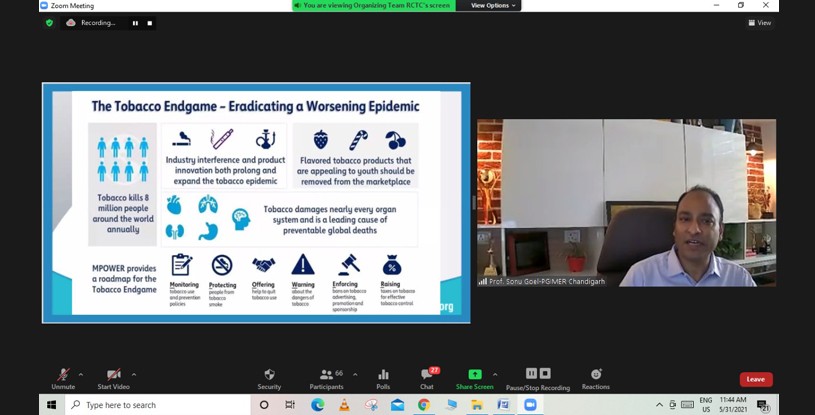Dr. Sonu Goel is Professor, Department of Community Medicine & School of Public Health, PGIMER, Chandigarh. He’s also a PI of a pioneering initiative ‘Strengthening Management of Hypertension Services Project’ (SMHSP). Under this project, as many as 32,000 patients are served during the unprecedented times of pandemic.
Dr. Sonu Goel has awarded many prestigious awards & recognitions for his contribution to the sector of life science. a number of these are – Public Health Excellence of India by Union Health Minister, Government of India, Certificate of Appreciation for top quality published research work on PGIMER, Chandigarh, Young Researcher Award (Epidemiology), IAPSM-FORD Foundation and much more.
Dr Goel has devised a reckoner for all of your FAQs'(Frequently Asked Questions) associated with vaccination to form the vaccination process less rough.
We present the responses to some very relevant FAQs’ for the advantage of all stakeholders within the vaccine initiative.
1) Who all are eligible for COVID-19 vaccination?
The criteria for administration of COVID 19 vaccination has been devised for groups who are most in danger of exposure or developing serious illnesses. the primary prioritised group is healthcare and frontline workers, followed by persons over 45 years aged. Now, people from 18-45 years aged also are eligible for vaccination. you’ll see state-level policy for it.
2) Which COVID-19 vaccines are licensed in India?
Two vaccines that are granted emergency use authorization by the Central Drugs Standard Control Organization (CDSCO) in India are Covishield (AstraZeneca’s vaccine manufactured by Serum Institute of India) and Covaxin (manufactured by Bharat Biotech Limited). However, other vaccines (like Sputnik V from Russia) have recently been approved by the govt. of India and can be delivered soon.
3) What percentage of shots of vaccine are needed?
Two doses of the vaccine, 4-6 weeks apart for Covaxin and three months apart for Covishield, got to be taken by a private to finish the vaccination program.
4) Which vaccine is more effective?
There is not any head to go comparison done between the 2 vaccines getting used in India so one cannot pick one over the opposite.
5) What’s the advantage of getting vaccinated for COVID-19?
The vaccine restricts you from getting the disease within the sort of severe illness. After the vaccine, we’ve hardly any hospital admissions and therefore the requirement for ICU admittances is almost negligible. However, it’s getting to not prevent you from getting the infection.
6) Are there any consequences of the vaccine? Where am I ready to report the side effects of the vaccine?
The safety of the COVID Vaccine is scientifically proven. like other vaccines, minor adverse events like mild to moderate fever, local pain and swelling at the injection site, malaise etc. could also be expected following COVID-19 vaccination. The beneficiaries are also requested to attend for half-hour post-vaccination at the vaccination site.
In very rare cases, a private may develop anaphylaxis. To handle these kinds of side effects, Adverse Events Following Immunization (AEFI) Management Centres are there at or near Vaccination centres. just in case of any side effect, you’ll contact the nearby clinic otherwise you may call helpline number 1075 to report the side effects of the vaccine.
7) Is vaccination mandatory? If so, what if I don’t want to require the vaccine or complete the schedule of the vaccine?
Vaccination for COVID-19 is voluntary. However, it’s advisable to receive the entire schedule of the COVID-19 vaccine (both doses) for shielding oneself against this disease and also to limit the spread of this disease to shut contacts including relations, friends, relatives and associates.
8) Why vaccination isn’t provided to children, & pregnant women? What about lactating mothers?
It has recently been recommended for lactating mothers. There are some clinical trials now underway to check the effectiveness and safety of the COVID-19 vaccines within the groups like children & pregnant women.
9) Can an individual presently having COVID-19 (confirmed or suspected) infection be vaccinated?
The infected individuals should defer vaccination for 3 months after symptoms resolution for subsequent dose.
10) Who should avoid getting both doses of vaccination?
Persons with a history of any Anaphylactic or allergy to a previous dose of COVID-19 vaccine; immediate or delayed-onset anaphylaxis or allergy to the vaccine should avoid the completion of the vaccine.
11) Do I want to use the mask/other COVID-19 appropriate precautions after receiving the vaccine?
Yes, everybody who has received the COVID-19 vaccine must still follow the COVID-19 appropriate behaviour i.e., mask, ‘do gaj ki doori’ and hand sanitization to guard themselves and people around from spreading the infection.
Additionally, to the present, the vaccinated individuals could become silent and asymptomatic spreaders for those not vaccinated and will cause the virus to stay circulating, if not wearing masks.
12) How long will I remain protected after vaccination?
The longevity of the immune reaction in vaccinated individuals is yet to be determined. Hence, continuing the utilization of masks, handwashing, physical distancing and other COVID-19 appropriate behaviours is strongly recommended.
13) Can patients with HT(Hypertension)/DM (Diabetes Mellitus) or other comorbidities take COVID Vaccine?
They must get vaccinated, and should contact a treating doctor just in case of any serious illness.
14) What’s the importance of getting a vaccination certificate and the way am I able to get it?
A vaccination certificate may be a verifiable proof of vaccination that you simply can use to determine that you simply are vaccinated in cases where any such requirement is specified.
There are two ways to urge vaccination certificate:·
- Online: After completion of the recommended doses, a message of completion of vaccine schedule would be sent to the registered telephone number alongside the link to access the digital certificate with QR code which may be saved on “Digi locker”.
- On the spot: The Vaccination Centre is liable for generating your certificate and for providing a printed copy post-vaccination on the day of vaccination itself. Please do enforce receiving the certificate at the Centre. for personal Hospitals, the fees for providing a printed copy of the certificate are included within the service fee (up to Rs. 250 per dose) for vaccination.
15) What’s the efficacy of the vaccine and when would antibodies develop after the vaccination?
Available data isn’t sufficient to discuss how long the vaccine is efficacious. Protective levels of antibodies will generally develop fortnight after receiving the 2nd dose of the COVID-19 vaccine.
16) Is that the vaccine effect on the new variant of COVID-19?
Yes, it provides an inexpensive amount of protection against the new variant of COVID – 19 too.
17) Does a vaccinated person still got to undergo the quarantine process during/after travel?
Yes, vaccines are for self-protection and therefore the status of being vaccinated doesn’t imply that the person isn’t carrying or transmitting the disease.
18) I even have few allergies, would there be any allergy test for vaccine suitability and the way to urge it done?
No, the govt of India isn’t suggesting/conducting an allergy test before the vaccination.
19) Am I able to have the 2 vaccine doses in several cities/states?
Yes, you’ll get vaccinated in any State/District. the sole restriction is that you simply are going to be ready to get vaccinated only in those centres which are offering an equivalent vaccine as was administered to you on your first dose.
20) What about those that are on medication for illnesses like cancer, diabetes, hypertension etc?
Persons with one or more of those comorbid conditions are considered within the high-risk category. Even for other chronic diseases like cardiac, neurological, pulmonary, metabolic, renal etc. vaccines should be taken. Those concerned should adhere to the continued treatment and will get vaccinated.
21) Could I drink alcohol before and after vaccination?
It is advisable to avoid drinking for a minimum of 2 days before vaccination and a minimum of 3 weeks after vaccination as drinking may interfere with the production of adequate antibodies within the body.













